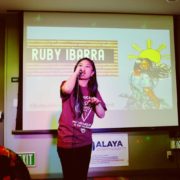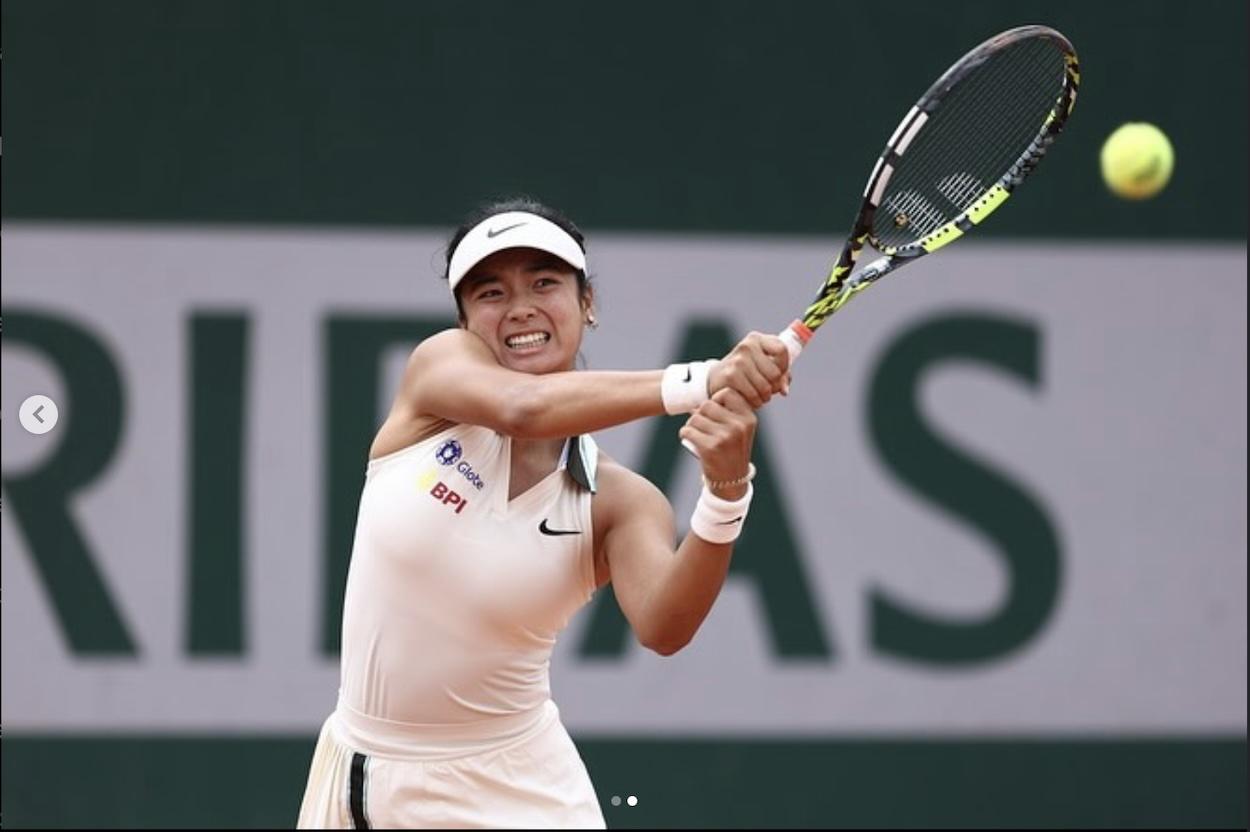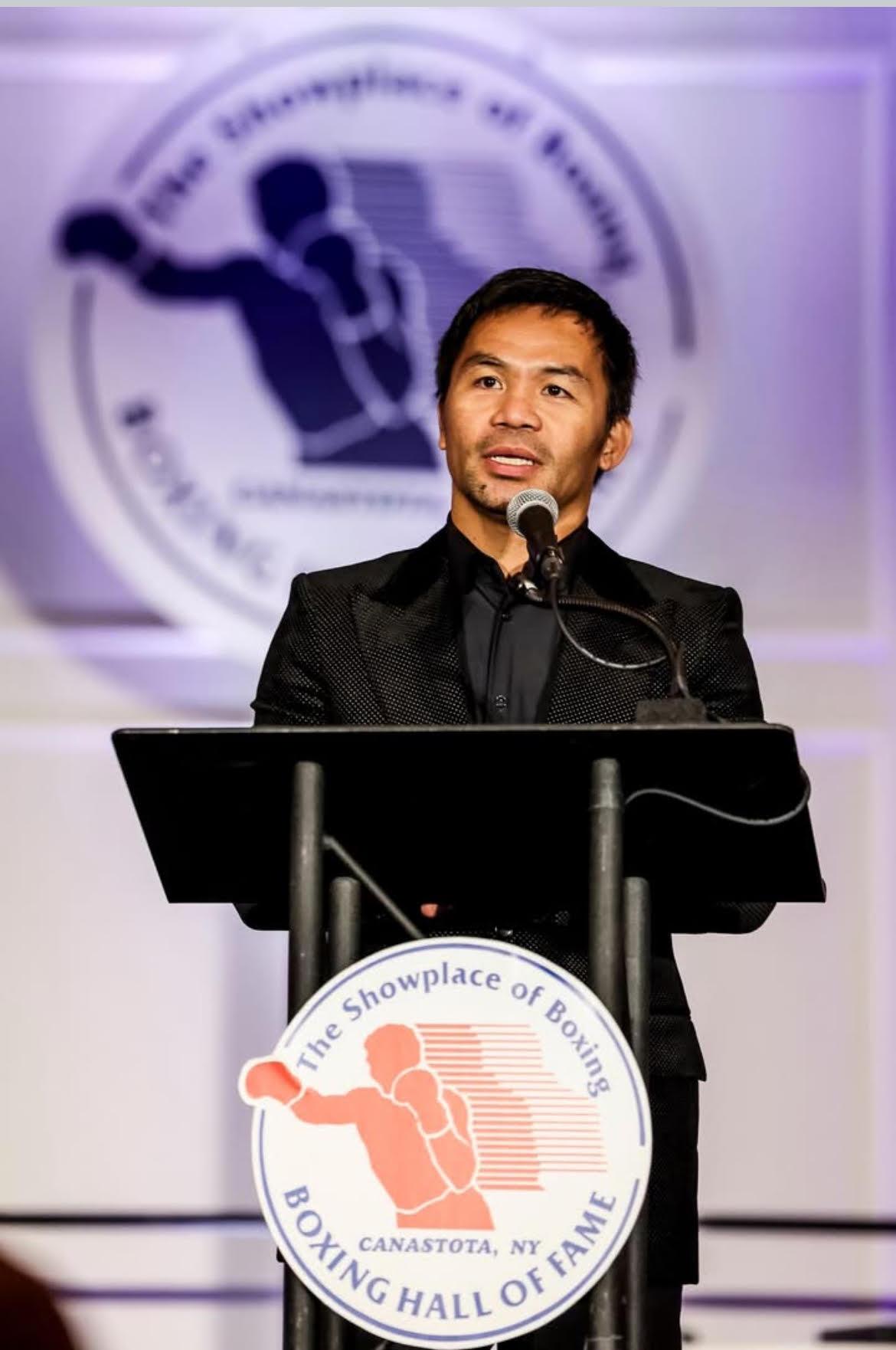Fostering empowerment in the Filipino community and women’s rights
IN the Asian Americans Advancing Justice building in Downtown Los Angeles, over 100 people filled up the first floor meeting room to rally for the rights of women in the Philippines. At the front of the room, the words #BabaeAko (I Am Woman) were lit on the projector screen.
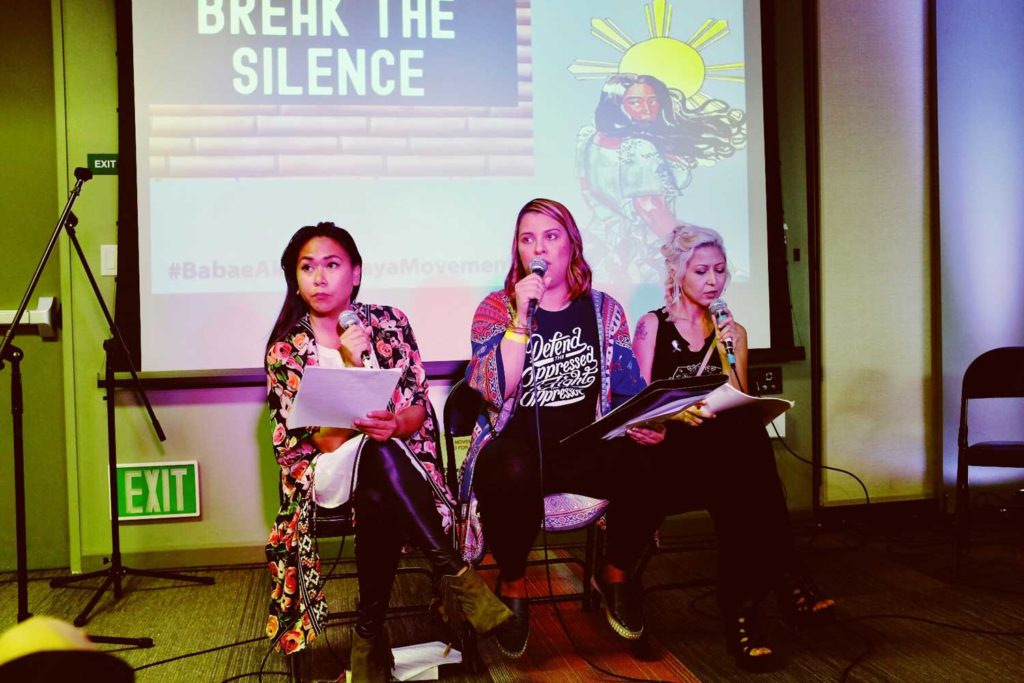
“It’s important that we have spaces like this,” rapper Ruby Ibarra told the Asian Journal after an energy charged performance on September 9. “It’s important to engage in conversation in our communities, and help spread awareness of what’s going on back home.”
The event, called “Pinay Uprising,” was created to support the emerging women led #BabaeAko movement in the Philippines by fostering empowerment in the Filipino community through stories and shared experiences of Filipina women.
Ibarra, who moved to the Bay Area from Tacloban City, Philippines at the age of four, pumped the crowd up with her songs “Here” which talks about the Filipina immigrant experience, and “Playbill$” which talks about the immigrant working experience and includes lines in the Filipino dialects of Waray and Tagalog.
Joining her in the unofficial Filipina empowerment anthem “Us” — which originally features Filipina rappers Rocky Rivera, Klassy, and Faith Santilla — was Silakbo Sa Miktinig, a group of young female rappers in their early to late teens.
Similar to the #MeToo movement that has been burning through the U.S., Europe, and across the world, the #BabaeAko movement too has been picking up steam.
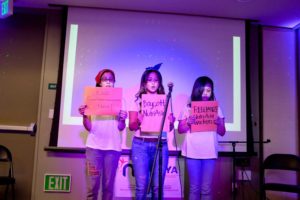
In June, TIME named the women of the movement as one of the top 25 most influential people on the internet. American actress Rosario Dawson in July publicly showed solidarity with the movement.
While the #MeToo movement has toppled down men from across the industries of entertainment to those in government, the women of #BabaeAko have put a big focus on Philippine President Rodrigo Duterte who aside from being criticized for human rights violations through his controversial war on drugs, has also developed a reputation for candidly making rape jokes and misogynistic comments since taking office in 2016.
Earlier this month, Duterte defended his latest rape joke by saying he was simply exercising his freedom of expression.
“These critics, you just say many were raped in Davao. I said because maybe there are many beautiful women in Davao. I didn’t say all of them were raped,” Duterte said in Filipino during his recent trip to Israel.
“But you are almost mesmerized or tempted kasi that’s how you control yourself. It is a democracy. Freedom of expression,” he added.
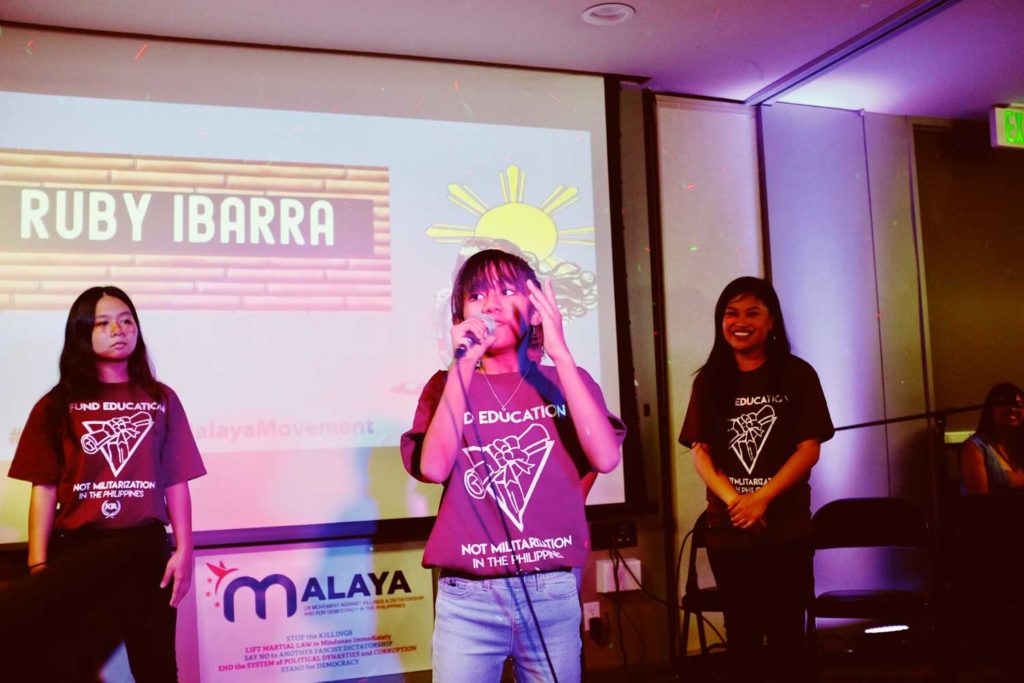
Duterte first got backlash over a rape joke during his 2016 presidential campaign when he joked about an Australian missionary, who was raped before being killed, as having been so beautiful that the mayor should have been first in line. Duterte also made international headlines when he gave his soldiers permission to rape up to three women amid concerns over martial law in the southern city of Marawi.
But on May 20, women in the Philippines — headed by a dozen of activists and artists — took to the streets and social media in starting the #BabaeAko movement.
“Let’s face it. There are a lot of cultural barriers for women of color,” said actress and model Giselle “G” Tongi who along with actresses Minerva View and Arianna Basco performed a reading from a collection of stories based off of actual experiences of women in the Philippines.
Tongi, also acts as a spokeswoman for the Malaya Movement which organized the event and is comprised of other grassroots movements looking to spread awareness of Filipino issues and hold the president accountable for human rights violations.
“Particularly for Filipinos, there’s a layer of cultural submissiveness and historically we have been asked to be quite about a lot of these issues.”
The reading, entitled “Breaking the Silence,” shed light on the different perspectives women in the Philippines on the issue of reproductive health rights and abortion.
Other performances depicted the experiences of working women in the Philippines, specifically those of NutriAsia which has been receiving backlash after numerous workers and journalists were injured and arrested for picketing against low wages and poor working conditions.
On the difference between the #MeToo and #BabaeAko movements, Tongi cited the historical roots of the Philippines.
“I think the #MeToo movement definitely sparked the #BabaeAko movement, but the difference is that as women of color and as Filipinas, there are historical roots that make it important for us to speak out as a Filipina,” said Tongi. “That’s very different from the #MeToo movement.”
She pointed out how many Filipinas still don’t have access to education, or access to services for issues like reproductive health.
“There are things that as FIlipinas, don’t talk about,” said Tongi. “We need to talk about reproductive rights. We need to change the mindset of Filipinos that they are are not just childbearing women, or that they’re supposed to work.”
One specific issue Tongi brought up was that of incestuous rape which the president’s daughter and current mayor of Davao Sara Duterte admitted was particularly high in her city.
For Ibarra, the timing of the movement in part came hand in hand with the new generation of strong and vocal young people who have been harnessing resources like social media to bring awareness.
“We see the rise of these movements, because we luckily have resources like social media to amplify our voices, and we have a lot artists too who are talking about it in their music,” said Ibarra, naming other rappers like Bambu, Rocky Rivera, and Blue Scholars.
“I think we’re in a great time in our community right now where a lot of people are willing to listen and are willing to engage in those conversations, not only amongst our peers, but engaging in dialogue with our parents, our auties, our lolas — the generations before us, and making sure they’re they’re also informed with what’s going on,” said Ibarra. “We just need to continue to be resilient.”


